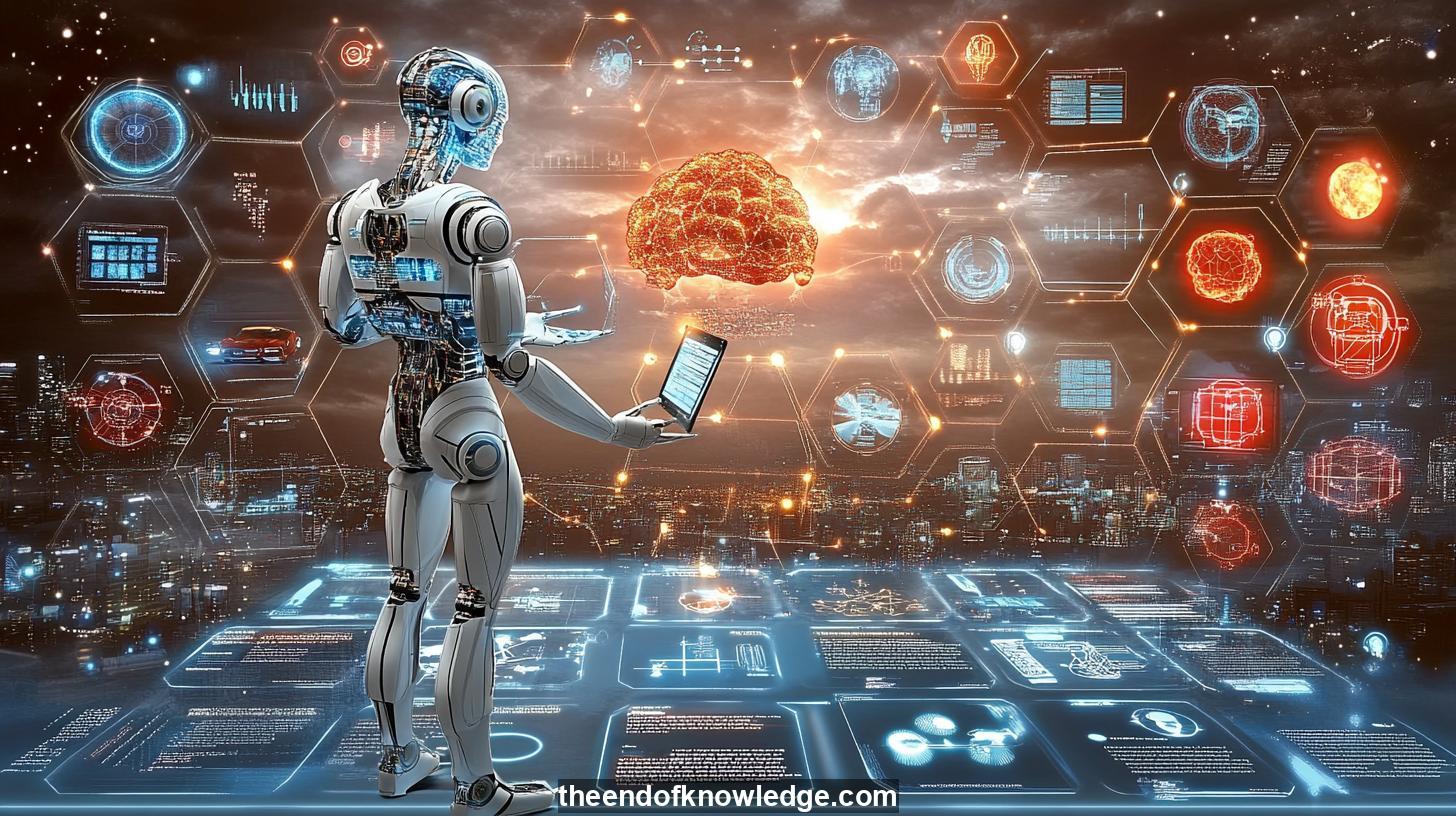 >
>
Concept Graph, Resume & KeyIdeas using DeepSeek R1 :
Resume:
The discussion revolves around the development and implications of Emobodied Artificial General Intelligence (E-AGI) acronym coiened by David Vivancos in his fourth book, emphasizing its potential to transform human reality. The conversation explores the ethical, societal, and technological challenges associated with creating AGI, highlighting the need for a balanced approach between innovation and regulation. The role of companies like OpenAI, Microsoft, and others in advancing AGI is discussed, along with the importance of diversity in AI development to ensure equitable progress. The transcript also touches on the concept of "embodied AI," where AGI is integrated into humanoid robots, raising questions about consciousness, empathy, and the future of human-AI coexistence. The discussion concludes with reflections on the ethical responsibilities of AI creators and the need for global collaboration to address the profound implications of AGI.30 Key Ideas:
1.- AGI development aims to create intelligent beings that surpass human capabilities in various tasks.
2.- Ethical concerns arise regarding the control and alignment of AGI with human values.
3.- Companies like OpenAI and Anthropic are leading advancements in AGI technologies.
4.- The integration of AGI into humanoid robots raises questions about consciousness and empathy.
5.- AGI could revolutionize industries but also poses risks like job displacement and privacy invasion.
6.- The concept of "embodied AI" explores the integration of AGI into physical forms.
7.- Regulatory frameworks are essential to ensure AGI development remains ethical and beneficial.
8.- Diversity in AI development teams is crucial for creating inclusive and equitable technologies.
9.- AGI could potentially solve complex global challenges like climate change and disease.
10.- The societal impact of AGI requires careful planning and international collaboration.
11.- AGI systems must be designed with transparency to build public trust.
12.- The evolution of AGI could lead to unforeseen consequences that challenge human identity.
13.- AGI development involves balancing technological progress with ethical considerations.
14.- The potential for AGI to enhance human capabilities is immense but must be managed responsibly.
15.- AGI raises questions about the future of work and the need for universal basic income.
16.- AGI systems must be robust against biases and adversarial attacks.
17.- The development of AGI requires interdisciplinary collaboration across sciences and humanities.
18.- AGI could redefine creativity, problem-solving, and decision-making processes.
19.- The ethical implications of AGI demand a global, multi-stakeholder approach.
20.- AGI represents a paradigm shift in human history, comparable to the Industrial Revolution.
21.- AGI could enable unprecedented scientific discoveries and innovations.
22.- The integration of AGI into daily life will require significant societal adaptation.
23.- AGI systems must prioritize human well-being and environmental sustainability.
24.- The development of AGI is a complex interplay of technology, philosophy, and ethics.
25.- AGI has the potential to address global inequalities but could also exacerbate them.
26.- AGI raises fundamental questions about consciousness, free will, and human identity.
27.- The future of AGI depends on addressing challenges like energy consumption and computational limits.
28.- AGI could revolutionize education, healthcare, and transportation systems.
29.- The ethical use of AGI requires ongoing dialogue between developers, policymakers, and the public.
30.- AGI represents both a promise of progress and a challenge to humanity's values and norms.
Interviews by Plácido Doménech Espí & Guests - Knowledge Vault built byDavid Vivancos 2025